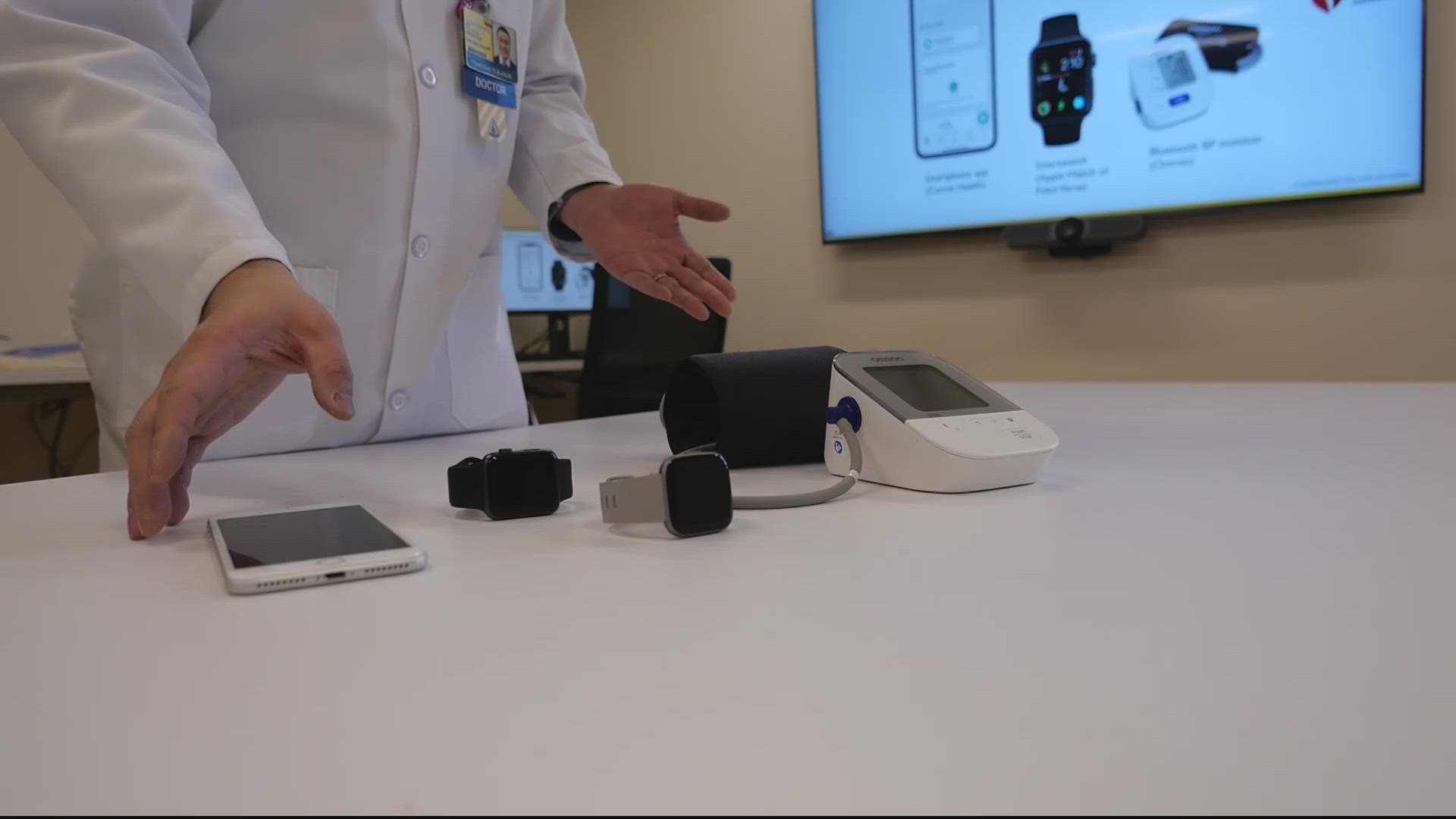WASHINGTON — We’re wrapping up Heart Health Month, but know it’s important to take care of your ticker no matter the time of year–and our Verify team got a question about some of the technology we wear to do that.
THE QUESTION:
How well do smart watches work in measuring cardiac activity?
THE SOURCES:
- Dr. Francoise Marvel and the Johns Hopkins Digital Health Lab
- Our sources are the FDA, popular smartwatch manufacturers (FitBit and Apple), and the doctors at Johns’ Hopkins Digital Health Lab–
WHAT WE FOUND:
For many of us, it’s like clockwork: getting up in the morning and putting on a smart watch. Besides just telling the time, they can help you stay connected and stay active. It can even keep your heart healthy, too.
“Digital health is focused on using everyday technologies that you might have in your pocket, whether it be a smartphone or a smartwatch, and using these technologies in your everyday life to help improve your heart health,” said Dr. Francoise Marvel. The assistant professor in the Division of Cardiology and co-director of Johns Hopkins Digital Health Lab at the Johns Hopkins University School of Medicine is also a self-professed “believer” in smart watch technology’s health applications--she says she wears one when she works out.
“Fitness is really a cornerstone of a heart healthy life,” said Marvel.
'Closing rings,' counting steps, and meeting fitness goals are major reasons why many people choose to wear smart watches. But along with her colleague Dr. Chang Kim, they’re finding the devices along with smart phones and even blood pressure monitors can help people stay in touch with their health even more closely.
“When you wear a smartwatch, it's able to detect certain signals, whether it's your heart rate that might be too low or might be too high, or it might be an irregular heart rate, something called atrial fibrillation,” said Marvel. She and others at Johns Hopkins created an app that uses smart technology to help monitor cardiac patients’ activity and found it can help keep people out of the hospital.
When worn properly and flush against the skin but not too tight– they say the technology is quite accurate. The FDA has approved heart-health tracking technology on the Apple Watch and the Fit Bit.
“Smart watches also have the ability to actually capture an EKG. So that's an electrocardiogram that actually shows the electrical waveforms of heart rhythm,” said Kim.
Building on the watches' precision and the tools they've developed, they hope to continue working with this technology to bring important medical resources within reach.
"If a patient has a diagnosis of high blood pressure, there are ways that we can use our smartwatch and our smartphone to help keep track of those blood pressures, remind them about medications to help control their blood pressures, and even give them tips about what diet is best to help keep high blood pressure in a safe range," said Marvel.
Errant notifications – “false alarms” – can be a real concern, though, so they recommend working in conjunction with a physician if you have specific health or cardiac needs.
"I think the normal activity tracking, you can use them as you see fit and how it fits into your lifestyle," said Dr. Kim. "But anything that gives you an alert for an abnormal finding, I think we would always suggest to discuss with their physician, a cardiologist, to kind of interpret what that means in terms of their kind of individual clinical context."
The researchers are also hoping the tech can help take people out of a clinical context--specifically, those who are living with heart conditions or after cardiac emergencies and prescribed cardiac rehabilitation, where they can essentially work out under medical supervision at a clinic several times a week.
"A significant portion of patients who are recommended to participate in these cardiac rehabilitation programs are unable to participate because of those barriers to care."
That’s why Johns Hopkins is currently working on a program that uses smart watch technology to bolster cardiac rehab – and get patients the recovery they need.
“I think that's where digital health tools are really going to make a difference for our communities is we want to reach more people, reach people who may not be able to have the resources to come in to the hospital as easily tracked and help you support with biofeedback your own heart healthy success story,” said Marvel.

